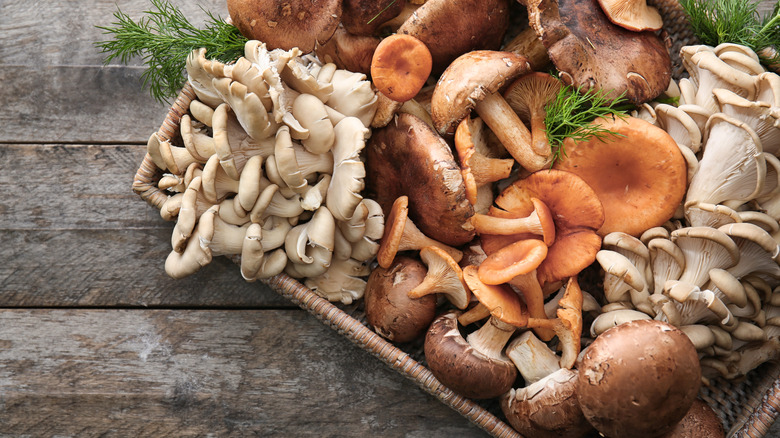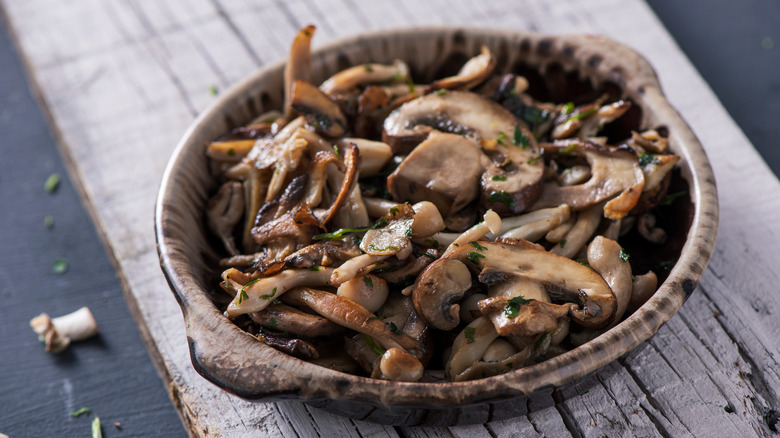Is It Safe To Eat Moldy Mushrooms?
Mushrooms are already categorized as a type of fungi — so it's reasonable to have uncertainties about how mold (which is also a fungus) might affect them. Luckily, there's a simple answer if you're wondering what to do with those moldy mushrooms lurking in the back of your fridge: steer clear.
According to Mushroom Huntress, you can tell mushrooms are close to spoiling if they display "dark, blotchy, wet spots." If only a few of the mushrooms in the bunch are showing these signs, it's safe to pick them out and check the rest. However, if you notice a "slimy" texture or dramatic shift in color throughout, it's a telltale sign that the mushrooms have already begun to grow mold. At this point, they should simply be tossed.
If you're ever uncertain, noted the website, it is better to be safe than sorry: consuming rotten mushrooms can cause food poisoning, nausea, and botulism. As the U.S. Department of Agriculture confirms, soft, fresh produce — such as mushrooms — should be discarded if moldy. Because they contain so much water, moldy mushrooms can easily "be contaminated below the surface."
How to make mushrooms last longer
Mushrooms can stay good for about seven days, according to The Spruce Eats — but only if you store them properly. Ideally, mushrooms should be kept unwashed and in a brown paper bag. Simply fold down the top of the bag, similar to if you were packing a lunch, and place it in the main area of your fridge. Avoid keeping mushrooms in the crisper drawer, as this can expose them to too much moisture and turn them moldy even quicker. Buying your mushrooms whole is another way to maximize their lifespan. As Cooking Light explains, whole mushrooms tend to last longer than the pre-sliced variety.
However, per The Spruce Eats, the safest bet is always to purchase mushrooms as close as possible to when you'll be cooking them. In addition to being less likely to spoil, the sponge-like mushrooms won't have a chance to absorb any "strong odors or flavors" that may be lingering in your fridge.

